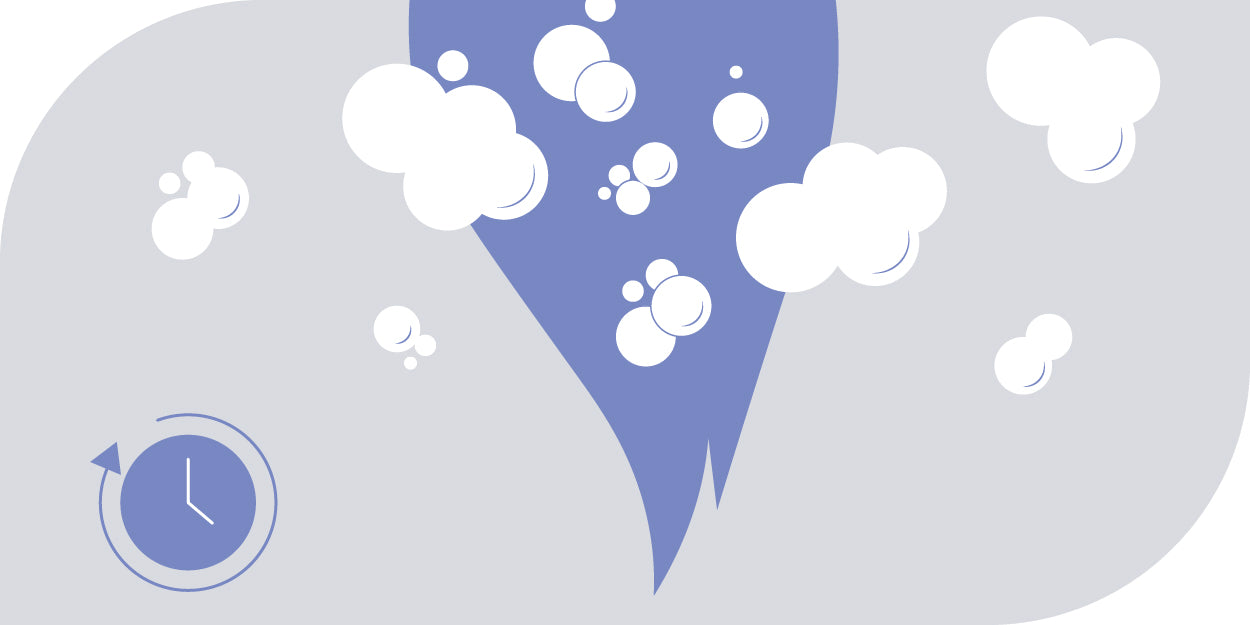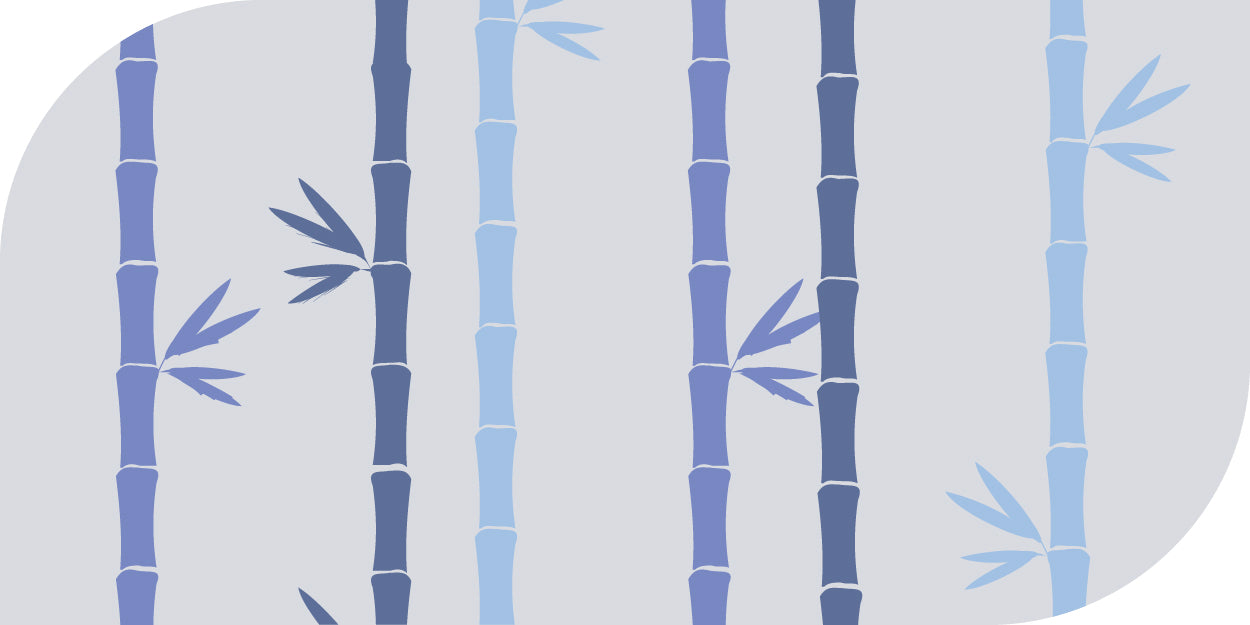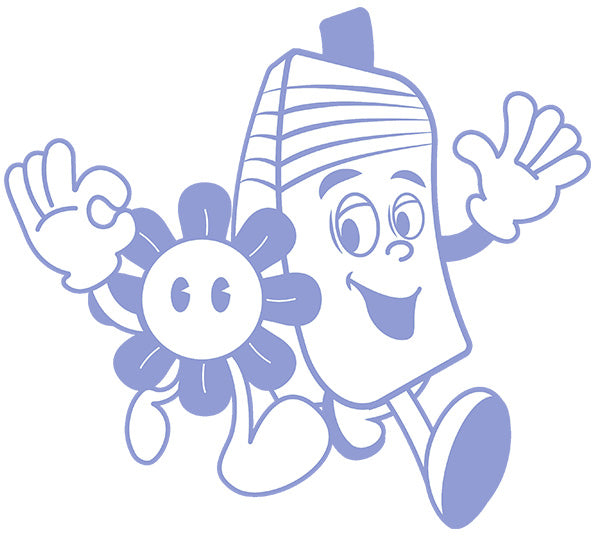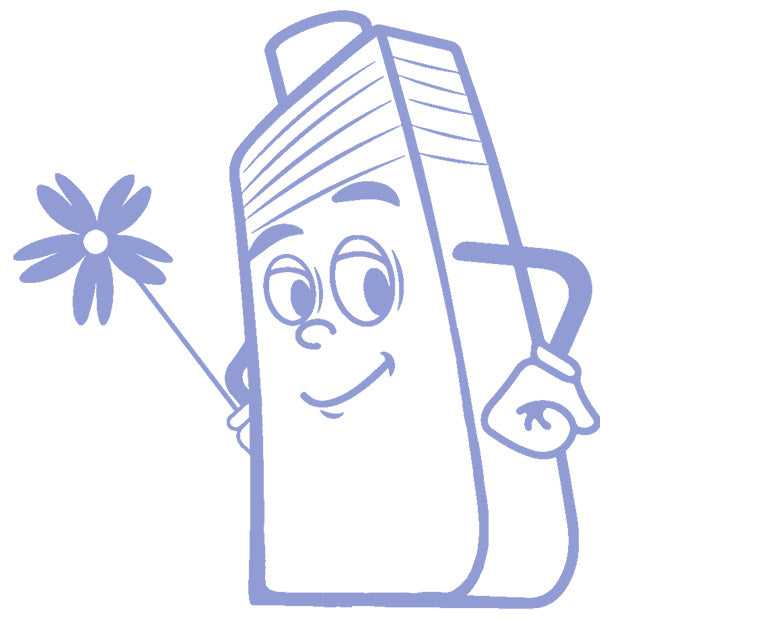Keep reading to learn what causes a dry itchy scalp, as well as our picks for the best dry scalp treatments. Plus, we'll tell you if your itching scalp is caused by dandruff or dry scalp.
Index
What is an Itching Scalp?
Your scalp is skin, so it can become itchy just like the rest of your skin! A lot of the same factors that cause itchy skin on your body can contribute to a dry itchy scalp: seasonal changes, diet, allergies, etc. However, an itching scalp can have some other special causes that pertain only to the scalp area (more on those later).
What are the Symptoms of a Dry Itchy Scalp?
The biggest symptom of a dry scalp is itching! If you often find yourself scratching your scalp, you may have a dry scalp. Some people with an itching scalp have even reported scratching their scalps in their sleep! Another major symptom of dry scalp is falling flakes, which is why this condition is often confused with dandruff.
Why Do I Have a Dry Itchy Scalp?
An itching scalp happens when your scalp’s natural balance of moisture becomes disrupted. An itchy scalp can have many causes, including:
- Age. As we get older, our skin produces less natural oils and becomes drier.
- Hormonal changes. Similarly, hormonal changes (such as menopause) can make skin drier and more prone to itchiness.
- Stress. Stress causes inflammation, which can also lead to an itching scalp. Stress can also trigger your itch receptors, even if there is nothing wrong with your skin! To reduce stress, try meditation, yoga, or journaling.
- Genetics. If either (or both) of your parents have dry skin, you’re more likely to have dry skin as well.
- Changes in temperature or seasons. This is the most common cause of dry scalp in the winter. Moving between temperature extremes (like frigid air outside and warm air inside) can dry out your skin.
- Poor diet. If you’re not eating the right mix of nutrients, an itching scalp could be the result.
- Smoking. Smoking causes inflammation and dries out the skin, which can lead to a dry scalp.
- Air pollution. Air pollution also causes inflammation, leaving your scalp itchy and dry.
- Allergies and irritation. Your itchiness could be caused by an allergy to something you’re eating or an ingredient in your hair products. Some common ingredients in hair products are also irritating for skin and can cause a dry itchy scalp.
When to Be Worried About an Itching Scalp
So how do you know if you just have a dry scalp, or if your itching scalp is a sign of something more serious?
If your scalp is so itchy that you are developing sores from the scratches, it’s time to make an appointment with your GP.
Other signs that you should see a doctor include if you’re noticing dry, scaly patches. These are signs that you have an underlying issue like dandruff, eczema, or psoriasis.
Dandruff vs Dry Scalp: What’s the Difference?
( a. Dandruff, b. Dry Scalp)
Let’s talk more about dandruff, which is commonly confused with having a dry scalp. How can you tell if your itching scalp is caused by dandruff vs dry scalp? Here’s how to tell the difference:
- Dandruff vs Dry Scalp Difference #1: Dry scalp is caused by a lack of sebum on the scalp, whereas dandruff is caused by too much sebum. This type of dandruff is caused by seborrheic dermatitis. Other signs of seborrheic dermatitis include oily, red, scaly skin.
- Dandruff vs Dry Scalp Difference #2: Dandruff is often triggered by a fungal infection, whereas dry scalp is triggered more by environmental and lifestyle factors.
- Dandruff vs Dry Scalp Difference #3: Dandruff flakes are bigger than dry scalp flakes. Additionally, dandruff flakes are often oily and yellow in appearance, whereas dry scalp flakes are usually dry and white.
If you suspect that you are suffering from dandruff or dry scalp, it is often possible to treat it at home by using a product developed for this problem, such as an antimicrobial dandruff shampoo. The two products below are really good for dandruff and irritated scalp and highly recommended.
Dry Scalp Treatments: Ingredients to Look For
If you do have a dry scalp, what is the best dry scalp treatment? The best dry scalp treatment should include one or more of these scalp-loving ingredients:
Aloe Vera
Aloe vera extract is proven to help reduce skin inflammation thanks to its soothing enzymes, carbohydrates, and plant sterols. Read more about aloe vera for scalp here.
Theobroma Cacao Seed Butter
Theobroma cacao seed butter, also known as cocoa butter, is another one of the best dry scalp treatments. Cocoa butter is rich in fatty acids, which hydrate dry scalps. Plus, cocoa butter creates a protective barrier that holds in moisture to prevent an itching scalp from reoccurring.
Olea Europaea Fruit Oil
Like cocoa butter, olea europaea fruit oil (otherwise known as olive fruit oil), has powerful moisturizing effects. Olive fruit oil is naturally rich in vitamins A and E plus hydroxytyrosol, all of which soothe inflammation.
Colloidal Oatmeal
If you’ve ever had chickenpox, you are probably already familiar with colloidal oatmeal’s skin-soothing properties. Just as colloidal oatmeal relieves itching for chickenpox patients, it also soothes an itching scalp.
Acai Extract
Thanks to its rich content of antioxidants, plant sterols, vitamins, minerals, and fatty acids, acai is considered to be a superfood. When applied to an itching scalp, acai extract provides healing and repairing. Acai extract also helps to protect an itching scalp against further irritation.
Blueberry Extract
Blueberry extract has strong anti-inflammatory and moisturizing properties, which is why it’s another one of the best dry scalp treatments.
9 Healthy Scalp Habits You Should Practice
Whether you are looking to soothe a dry itchy scalp or prevent an itching scalp from happening in the first place, these scalp care habits will ensure a healthy, moisturized scalp.
1. Treat Your Scalp

First things first, treat your scalp with Instant Relief™ Scalp Spray! This natural scalp treatment soothes and nourishes a flaky, itchy, or dry scalp, restoring its optimal moisture and acidity balance. Powered by carefully selected naturally anti-inflammatory and anti-bacterial ingredients, this scalp treatment offers a comprehensive solution for scalp health.
2. Use Less Irritating Shampoos

Shampoos with sulfates may lather well, but they can also irritate your skin. If you have an itching scalp, consider switching to a moisturizing, sulfate-free shampoo like Split Fix™ Shampoo. Not only will this nourishing shampoo improve the condition of your dry, itchy scalp, but it will also help to nourish your hair with organic plant extracts and oils. Hint: we also have a formula for thinning hair and curly hair!
3. Adjust Your Shampoo Schedule

Even if you use the most gentle shampoo in the world, if you wash your hair too often, you’ll experience a dry scalp. Most people find that shampooing their hair two or three times per week is adequate. If you work out frequently, you may need to shampoo your hair more often.
While dry shampoo may help to reduce greasiness in between washes, keep in mind that dry shampoo isn’t an actual shampoo. That means that it doesn’t remove dirt, excess sebum, or product buildup.
4. Turn Down the Temperature

Showering with steaming hot water feels great (especially in the winter!), but it’s super drying for your skin. When washing your hair, opt for warm water instead. It might not feel as nice, but your dry scalp will thank you!
5. Exfoliate Your Scalp

A combination of hair products, dead skin, and sebum can build up on your scalp, contributing to irritation by suffocating the hair follicles. The solution? Exfoliate your scalp to remove that buildup and let your hair follicles breathe!
One of the best dry scalp treatments is our Scalp Delight™ Detox Scrub. This certified organic scrub is made with rice powder, which gently exfoliates dry itchy scalps. Meanwhile, aloe leaf extract, spearmint leaf oil, oat extract, blueberry extract, and acai extract work to soothe an itching scalp with potent antioxidant properties. For best results, use with Scalp Delight™ Detox Conditioner developed for dry, itchy and irritated scalps, along with the Scalp Massage brush!
6. Try Oils

If your scalp is extra dry, you may also have very dry hair. The scalp produces sebum to hydrate your hair and protect it from moisture loss. But if your scalp isn’t producing enough sebum, your locks may also be suffering. To ensure that your hair is fully moisturized, you may find it beneficial to use an oil treatment like Moisture Hero™ Hair Oil. This moisturizing oil is formulated with six plant-based oils and shea butters esters which all contain vitamins and healthy fatty acids to effectively nourish and moisturize dry hair and scalp.
7. Sleep Your Way to a Healthier Scalp

Most people sleep with cotton pillowcases, but cotton isn’t an ideal fabric for a pillowcase. Why? Because cotton has rough fibers, which can dry out your hair and your scalp. The result? A dry itchy scalp!
Instead, try our Silky Bamboo Pillowcase, which is made with soft and smooth bamboo fibers that don’t irritate an itchy scalp. Additionally, bamboo has natural antibacterial and antifungal properties. So if your itching scalp is caused by a fungal infection, switching to a bamboo pillowcase may help.
Tip: Mix and match to find your favorite bamboo bedding combination with Silky Bamboo Duvet Cover. They come in 8 different colors!
8. Nourish Your Scalp from Within

As we said before, a poor diet can be the cause of an itching scalp. To improve the health of your scalp, choose meals made with whole foods with an emphasis on lean proteins, healthy fats, and lots of fruits and vegetables.
Hair experts especially recommend upping your intake of anti-inflammatory omega-3 fatty acids, which are found in salmon, sardines, and flax seeds. Fatty acids improve skin moisture from within, which is why they work so well to treat a dry itchy scalp.
It’s also possible that a food allergy is contributing to your skin inflammation. For example, some people find that eating gluten or dairy can contribute to eczema. If you suspect that this is the case for you, talk to your GP.
To make sure that you have all your bases covered for a healthy, well-nourished scalp, you may also consider taking a hair supplement like Hair Formula Gummies for Women. Our supplements contain scalp-loving ingredients like iodine, vitamin B12, and vitamin E. Plus, they’re made with all-natural ingredients, so you know they’re good for you.
9. Drink More Water

Finally, one of the best dry scalp treatments is simply to drink more water! Your skin uses the water you drink to stay hydrated and supple. So it makes sense that if you’re not drinking enough water, you may experience a dry scalp. According to the NHS, you should drink 6 to 8 glasses of water every day.
4 best products to add to your scalp routine
After digging into the best habits to incorporate in your scalp routine, here are some products your scalp routine should not be missing. All these products are formulated with soothing and moisturizing ingredients such as aloe vera, colloidal oatmeal, and blueberry extract to provide extra good care for your scalp.
- Instant Relief™ Dandruff Shampoo - This product is specifically formulated to provide relief from dandruff and an irritated scalp.
- Scalp Delight™ Detox Scrub - A certified organic scrub made with rice powder and various soothing extracts like aloe leaf, spearmint leaf, oat, blueberry, and acai. It helps to gently exfoliate dry, itchy scalps.
- Grow Perfect™ Thickening Spray - This scalp-renewing treatment contains ingredients such as aloe leaf juice and olive oil extract to soothe and nourish an itching scalp.
- Moisture Hero™ Hair Oil - Formulated with six plant-based oils and shea butter esters, this oil treatment provides moisture to both the hair and scalp, addressing extra dryness.
We hope this article has taught you everything you need to know about what causes a dry itchy scalp, and the best dry scalp treatments!









































































